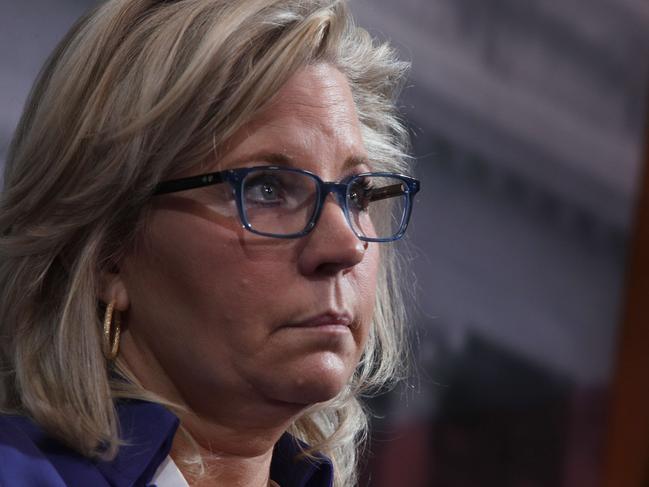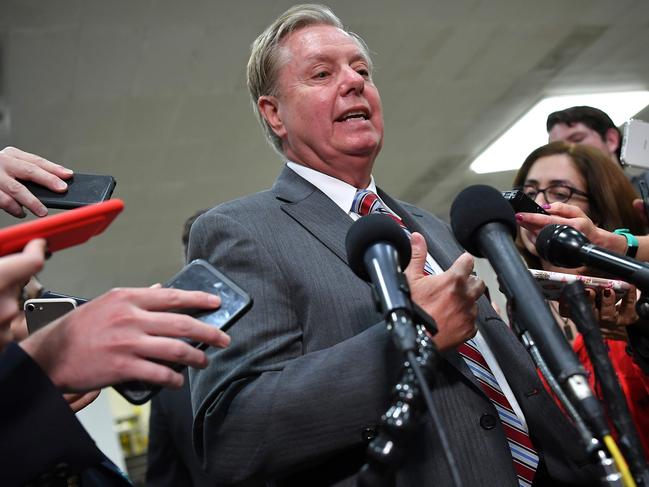Trump rewrites the Middle East playbook with Syria pullout
President’s withdrawal of US forces in Syria causes chaos for all players in region.

Turkey’s military offensive against US-backed Kurdish forces in Syria opens an uncertain new chapter in Washington’s Middle East policy as Donald Trump willingly cedes influence to Ankara and other regional players.
In clearing the way for Turkey to attack Kurdish fighters who were directly armed by the US in the fight against Islamic State, Trump shifted the US approach to the region by setting aside commitments by American officials who previously assured the fighters the US would not abandon them. The move holds potential implications for other US interests in the region.
The US military said it has suspended joint operations with Kurdish-led forces against Islamic State extremists because of the Turkish assault. And Iranian and Iran-backed forces in Syria, if emboldened by the US pullback, stand to pose a heightened risk to Israel, which has conducted hundreds of airstrikes in Syria against them.
Trump posted on Monday on Twitter that the US wasn’t abandoning the Kurds. In a statement on Wednesday, the President criticised Turkey’s military assault but didn’t mention the Kurdish forces under attack.
“Turkey has committed to protecting civilians, protecting religious minorities, including Christians, and ensuring no humanitarian crisis takes place — and we will hold them to this commitment,” Trump said. Later that day, he told reporters, “The worst mistake the United States has ever made, in my opinion, is going in to the Middle East. It’s a quagmire.”
A month earlier, he approved the deployment of 200 US troops to Saudi Arabia following an attack on its oil facilities that was widely blamed on Iran.
Trump also said then that he wouldn’t protect Saudi Arabia, which in the past has enjoyed a strong military alliance with the US, if a conflict were to occur. His stance on Syria has drawn widespread denunciation from some of his strongest supporters in congress, from former military commanders who oversaw the fight against Islamic State and diplomats who worry about America’s ability to find partners the next time major global crises arise. European allies also voiced concern.
Republican congresswoman Liz Cheney said Trump’s decision to withdraw US forces from Syria was having “sickening and predictable consequences”. Senator Rand Paul was one of the few politicians to defend Trump’s move away from “endless wars”.

Senators Lindsey Graham and Chris Van Hollen issued an outline for legislation imposing sanctions on Turkey, and plan to present it to colleagues next week.
For Trump, it is his third move to disengage from Syria. In March last year he froze Syrian recovery funds and called for a withdrawal. In December last year he ordered a US pullout, prompting the resignation of defence secretary Jim Mattis. In both instances US officials and allies cited reasons for keeping forces in place, and US troops remained.
“What’s so damaging about all this is all the yoyo-ing back and forth that’s really taken a toll on all of the actors in the region,” says Jasmine El-Gamal, a Middle East adviser at the Pentagon during the Obama administration. “They just don’t know what side of the bed the President is going to wake up on, and what he’s going to say.”

Trump has defined a limited form of partnership with the Kurdish forces. Once Islamic State’s self-declared caliphate was all but destroyed, Trump began looking to withdraw US forces without publicly addressing the Kurdish forces’ attempts to advance their political goals for autonomy in Syria.
After his decision was criticised, Trump said he would inflict devastation on Turkey’s economy if Ankara injured US personnel. However, the subject of possible sanctions against Turkey wasn’t part of White House discussions last weekend before Trump’s Sunday night announcement that the US was stepping aside for the Turkish incursion, according to a senior administration official.
The official added that Trump preferred to avoid aggravating Ankara if doing so guaranteed Turkey’s co-operation.
In those discussions, Trump listened to advisers who warned of the potentially adverse repercussions of a pullback. While he took those arguments into consideration, in the end “he’s had enough”, the official said.
The official acknowledged the likelihood that the decision would strain relations with the Kurds, as well as coalition partners in Europe and elsewhere. “He knows it,” the official said of the President. “They’re just not his priority.”
Some US officials said the Turkish operations might have been co-ordinated with Russia, in part with the aim of getting the US out of Syria. Russian President Vladimir Putin, the main backer of Syrian President Bashar al-Assad, urged Turkish President Recep Tayyip Erdogan in a phone call on Wednesday not to damage overall efforts to resolve the Syrian crisis, according to the Kremlin.
An immediate US concern is how the Turkish campaign will affect efforts to contain the threat from Islamic State and prevent the group from rebuilding. In August, a Pentagon report warned that Islamic State was regaining strength.
Kurdish fighters in northeastern Syria hold about 12,000 Islamic State fighters — including 2000 from other parts of the world — in detention centres.
Trump has been unable to persuade allies in Europe to take back fighters from their countries, creating an unresolved problem for Kurds and the US.
Kurdish leaders said they were redirecting fighters from guarding the Islamic State detention centres to fighting Turkish forces, creating concerns that the extremist fighters could try to escape.
On Wednesday Trump sought to shift responsibility for the fighters to Turkey, even though Ankara has no plans to seize parts of Syria where many of the Islamic State detainees are held.
Additional reporting: Lindsay Wise, Nancy A. Youssef
The Wall Street Journal


To join the conversation, please log in. Don't have an account? Register
Join the conversation, you are commenting as Logout